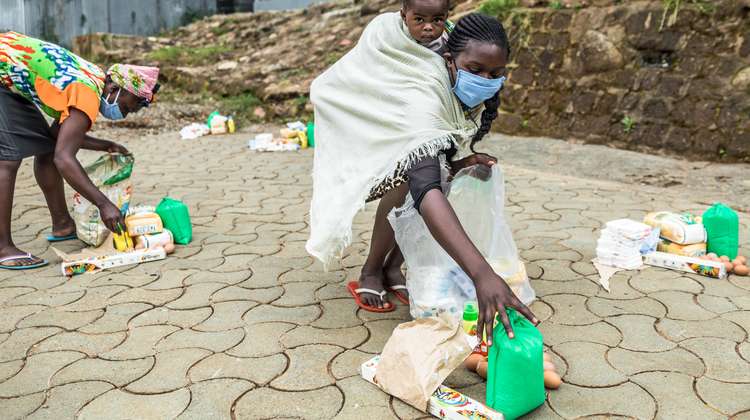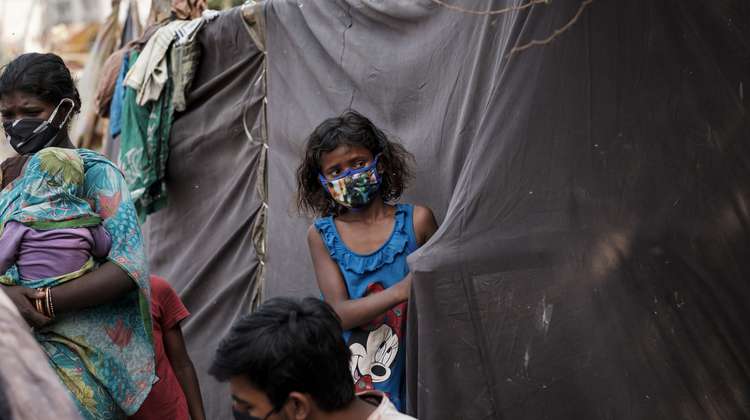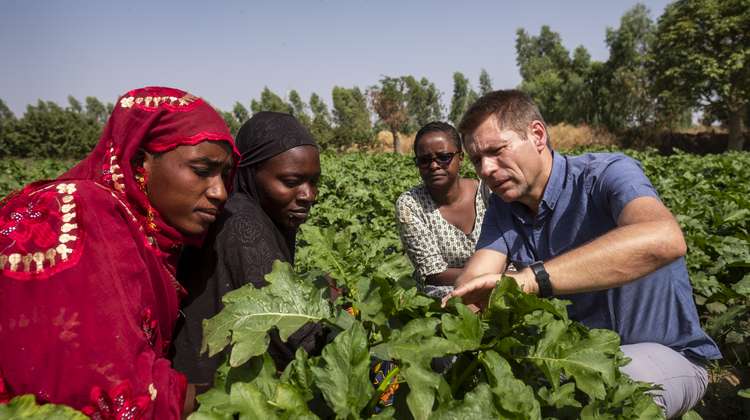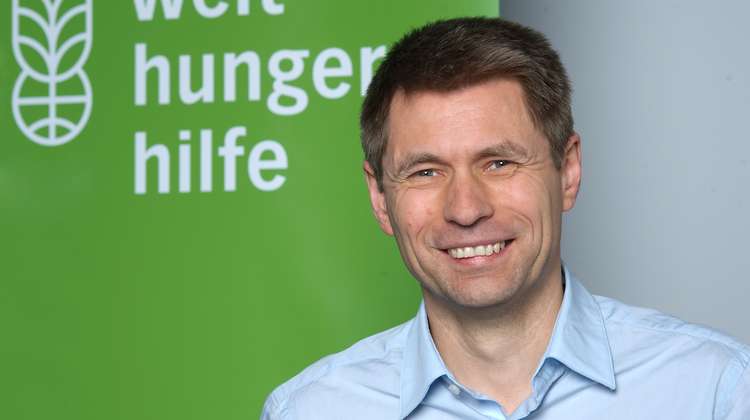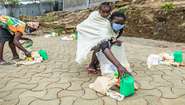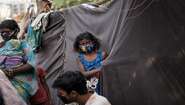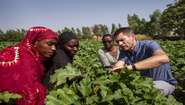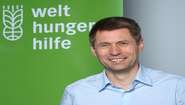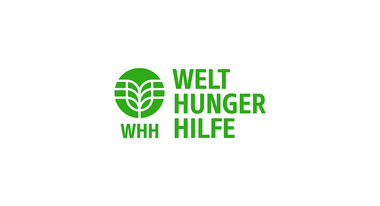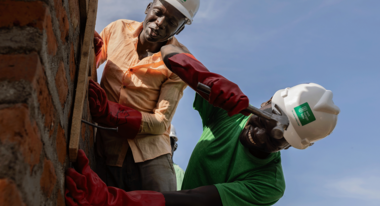Aid organisations call for greater engagement by the German government
Compass 2020: Report on the Reality of German Development Policy: The coronavirus crisis is devastating for the poorest countries
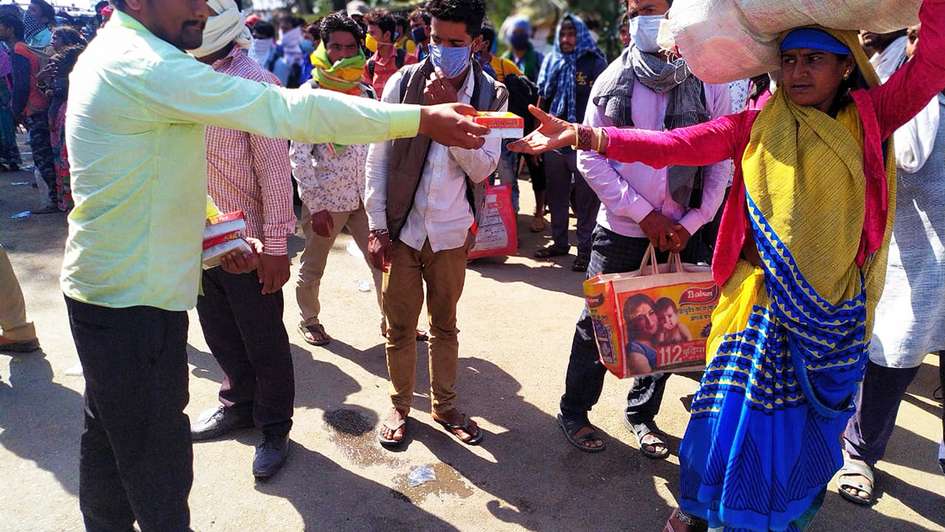
Bonn/Osnabrück, 2020-05-15. The coronavirus crisis presents new challenges for the development policy of the German federal government. Beyond the crucial short-term aid being provided through the German government’s coronavirus rapid-relief programme, significantly greater funds will be needed in the long term to fight the hunger, the poverty, and the education gaps resulting from the pandemic. The economic effects of the crisis are striking the world’s poorest countries the hardest, as explained by Welthungerhilfe and children's aid organisation terre des hommes at this year's presentation of their joint report on the reality of development policy.
“For us, face masks might be most representative of the coronavirus crisis, but for millions of children in impoverished countries, the coronavirus crisis represents poverty and the end of their education opportunities”, said Birte Kötter, executive spokeswoman for terre des hommes.
“The coronavirus rapid-relief programme must therefore explicitly provide for food security and basic schooling so that the crisis does not leave these children at a permanent disadvantage.”
“Global hunger rates could rise from 820 million to one billion people as a result of the crisis. The poorest members of society lose their last source of income overnight when coronavirus-related restrictions eliminate job opportunities for day labourers and migrant workers. They are at a greater risk of dying from hunger than from the virus itself. In developing countries, up to 70 percent of the labour force works in agriculture—with no social safety net. Any strategy aiming to alleviate their hardship and trigger an economic upswing must focus on the agricultural and nutrition sectors.
The essential role that farmers play for developing countries precludes any reduction in funding for rural development or for the fight against hunger. The BMZ rapid-relief programme is important and must, as demanded by Federal Minister Müller, be reinforced with around three billion from the supplementary budget without undermining long-term development efforts", underlined Mathias Mogge, secretary general of Welthungerhilfe.
terre des hommes also called for children’s rights to be awarded a much higher priority in Germany’s development policy regardless of the coronavirus crisis. “The rights of children need to be more firmly enshrined in development policy, yet they hardly figure in the BMZ reform plan for 2030. Regarding the current status of children’s rights in development policy, terre des hommes gives BMZ a failing grade”, commented Birte Kötter.
Compass 2020 represents the evolution of an annual report on the reality of German development policy that terre des hommes and Welthungerhilfe have been publishing since 1993. It continues to critically analyse German development policy with a particular focus on the demands made of German politics by the 2015 UN Agenda for Sustainable Development.
Download Press Images
Usage note: Please note that the pictures may only be used in a Welthungerhilfe context and may not be passed on to third parties. Images must bear the credit copyright "Photographer"/Welthungerhilfe. No long-term archiving. Please delete pictures after use!
Welthungerhilfe is one of the largest private aid organisations in Germany; politically independent and non-denominational. It is fighting for “Zero Hunger by 2030”. Since it was founded in 1962, more than 9,300 overseas projects in 70 countries have been supported with 3.71 billion euros. Welthungerhilfe works on the principle of empowering people to help themselves: from rapid disaster relief to reconstruction and long-term development cooperation projects with national and international partner organisations.





